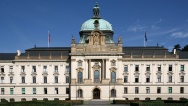Press Advisories
31. 3. 2015 23:29
EC may approve the first 4 operational programmes in late April or early May
During the talks, the prime minister stressed that this was the area of cohesion policy that the government has considered its key priority since it took office. The prime minister thanked the commissioner for initiating the creation of a special working group, which is helping the Czech Republic and seven other member states resolve drawing of money from the previous programme period.
Commissioner Corina Crețu said she appreciated the activity and visible progress of the new Czech government in fulfilling the preliminary conditions for drawing EU money in the years to come. Prime Minister Sobotka's cabinet in cooperation with the European Commission in recent weeks has managed successfully to finalise the form of the service act, which has been the main obstacle preventing obtaining of EU money.
The prime minister assured the commissioner that the Czech Republic would remain an active and reliable partner in the area of cohesion policy. At this time, the cabinet ministries are preparing to draft the first requests for the operational programmes of the current 2014-2020 period. Commissioner Crețu at today's talks Also confirmed that the European Commission was prepared to approve the Czech operational programmes at the turn of April and May of this year, as soon as possible following the revision of the multiannual financial framework.
With today's meeting with the commissioner for regional policy, the prime minister is continuing in a series of balancing meetings with European partners, which he began this month in Brussels. On Thursday, 2 April, Prime Minister Bohuslav Sobotka will hold talks with European Commission Deputy Chairman Maroš Šefčovič regarding the energy union project, which is among the key priorities of the Czech Republic's upcoming presidency of the Visegrad Group.
Sobotka's government's main steps related to drawing EU funds
- In August 2014, the Partnership Agreement was finalised and approved
This is an encompassing strategic document, which defines the priorities and expected results for the 2014-2020 programme period. - Negotiations and successful resolution of issues related to the preliminary conditions (EIA, service act and more)
In order for us to be able to draw European money, it was necessary to agree on and fulfil 7 general and 26 thematic conditions.
This involves fulfilment of both horizontal conditions, which have blocked all operational programmes (the service act, EIA), and specific conditions related to individual operational programmes (energy and digital technology). - Consultation of the European Commission regarding all operational programmes before their approval
Most operational programmes were discussed so that they could be submitted by 17 4 and approved at the turn of May and June, depending on revision of the European budget. - Resolution not only of the new programme period, but also the most possible flexibility for drawing the remaining funds from the previous programme period
We will focus both on the new programme period and on finishing drawing as much as possible from the previous period.
This is an issue that the Czech Republic managed to get into the December conclusions of the European Council (more flexible financing particularly of long-term infrastructure and educational projects) and into negotiations at the last meeting of the European Council. - The issue is regularly discussed in talks for ESI funds and is regularly included in the agendas of cabinet meetings.






